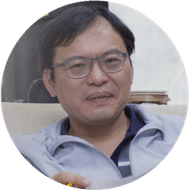
Wen-Hsuan Tsai
Research Fellow, Institute of Political Science, Academia Sinica
Wen-Hsuan Tsai (蔡文轩) is a research fellow at the Institute of Political Science, Academia Sinica, Taiwan. His main academic interests are Chinese political development and comparative authoritarian regimes. He has recently published articles in Asian Survey, China: An International Journal, China Review, China Journal, China Quarterly, China perspectives, Journal of Contemporary China, Journal of Chinese Political Science, Journal of East Asian Studies, Modern China, Problems of Post-Communism, and Issues & Studies. He has also published books such as The Logic of Political Reform in Mainland China: A Comparative Study of Sichuan, Guangdong, and Jiangsu (2011) (in Chinese) and co-authored Targeting the 18th Party Congress: The CCP's Fifth Generation of Political Leaders (2012) (in Chinese).